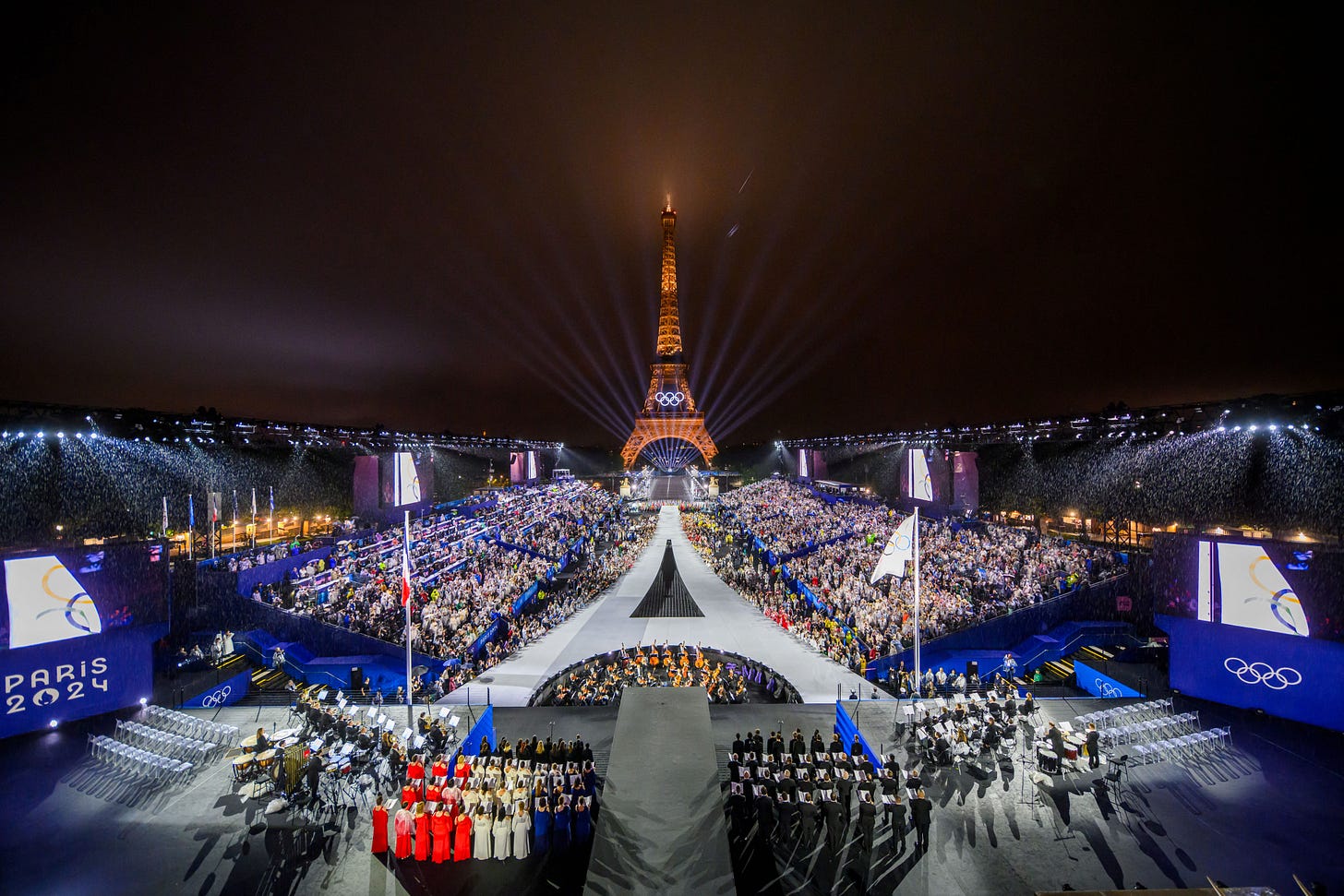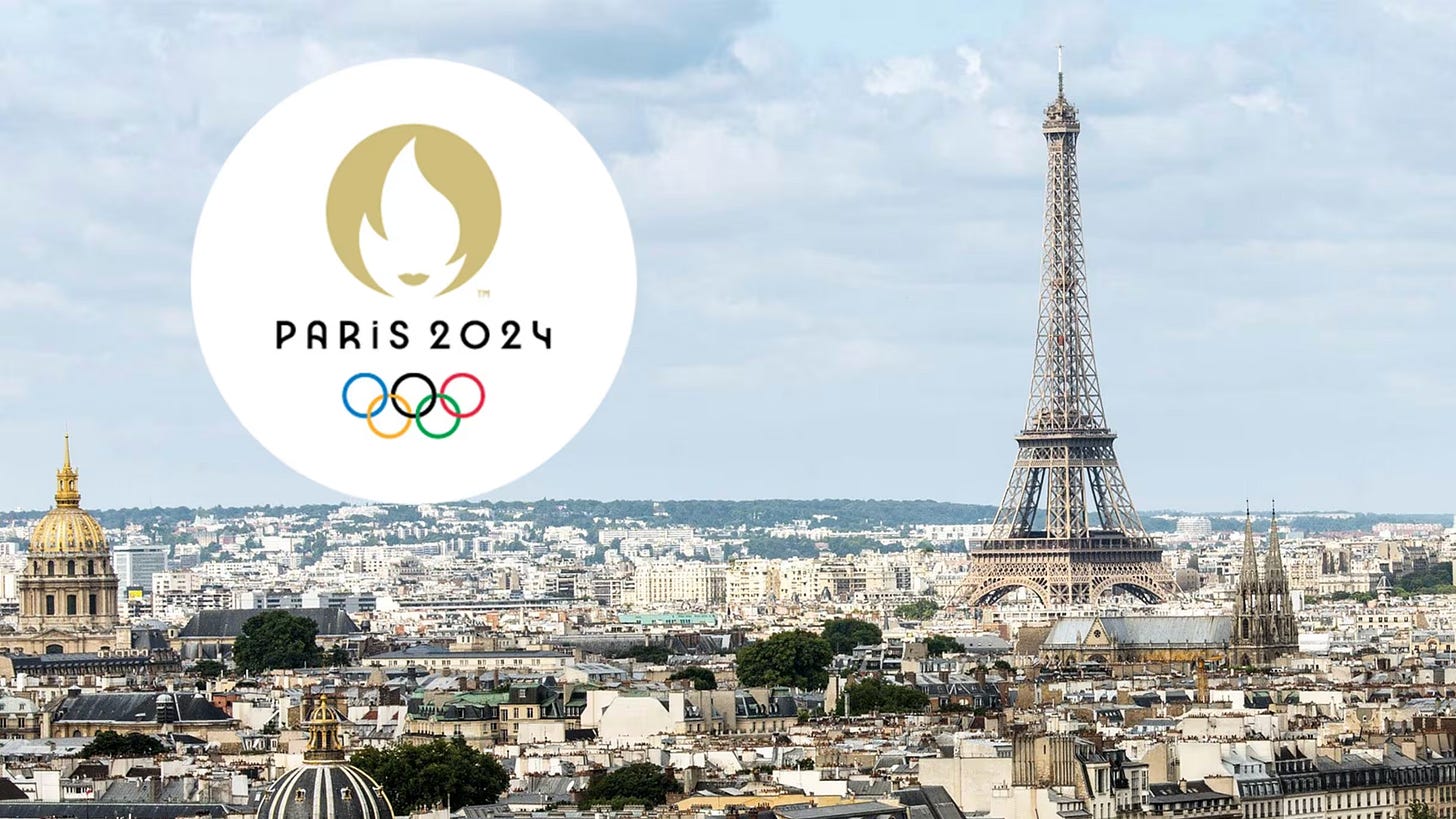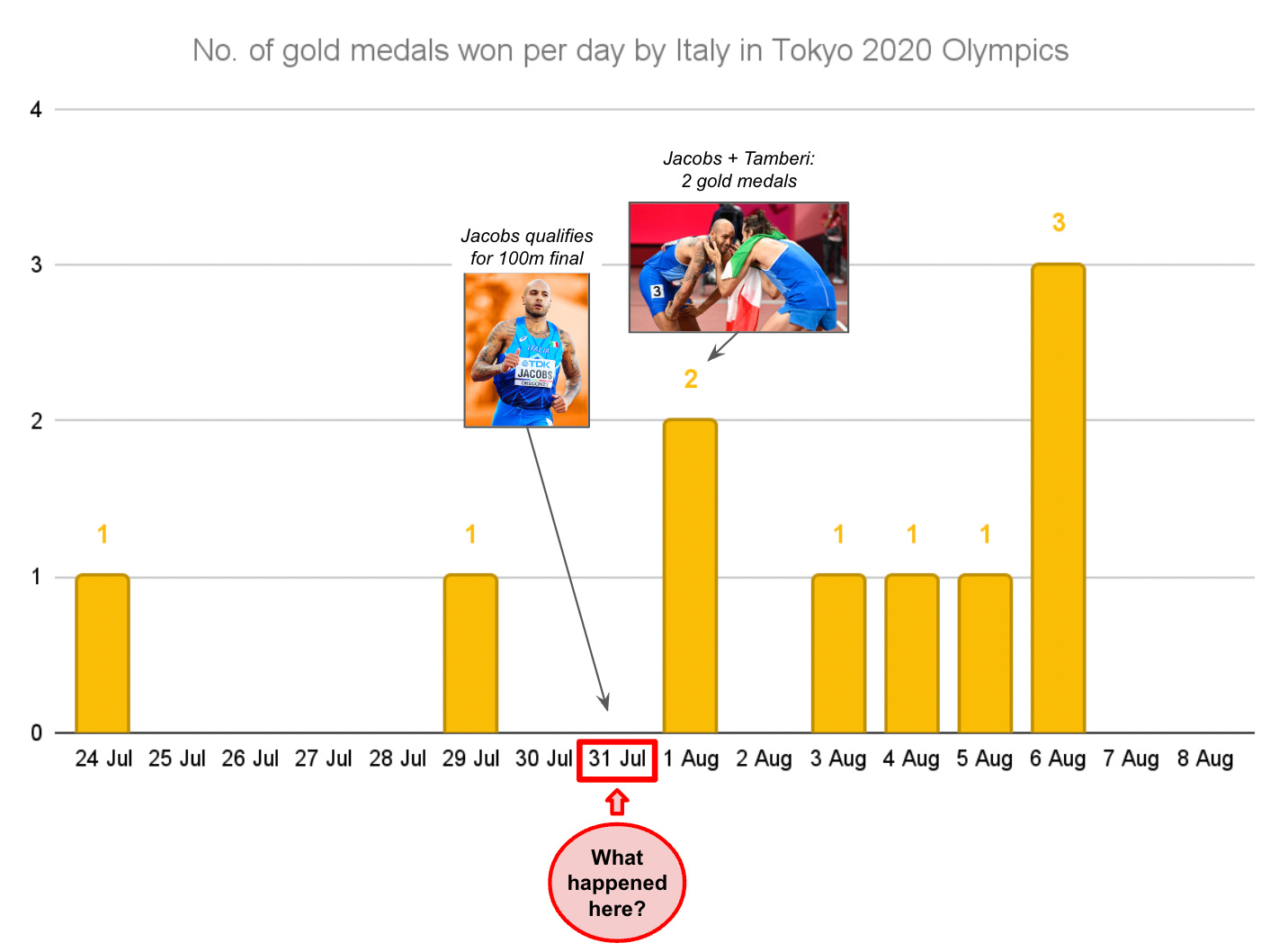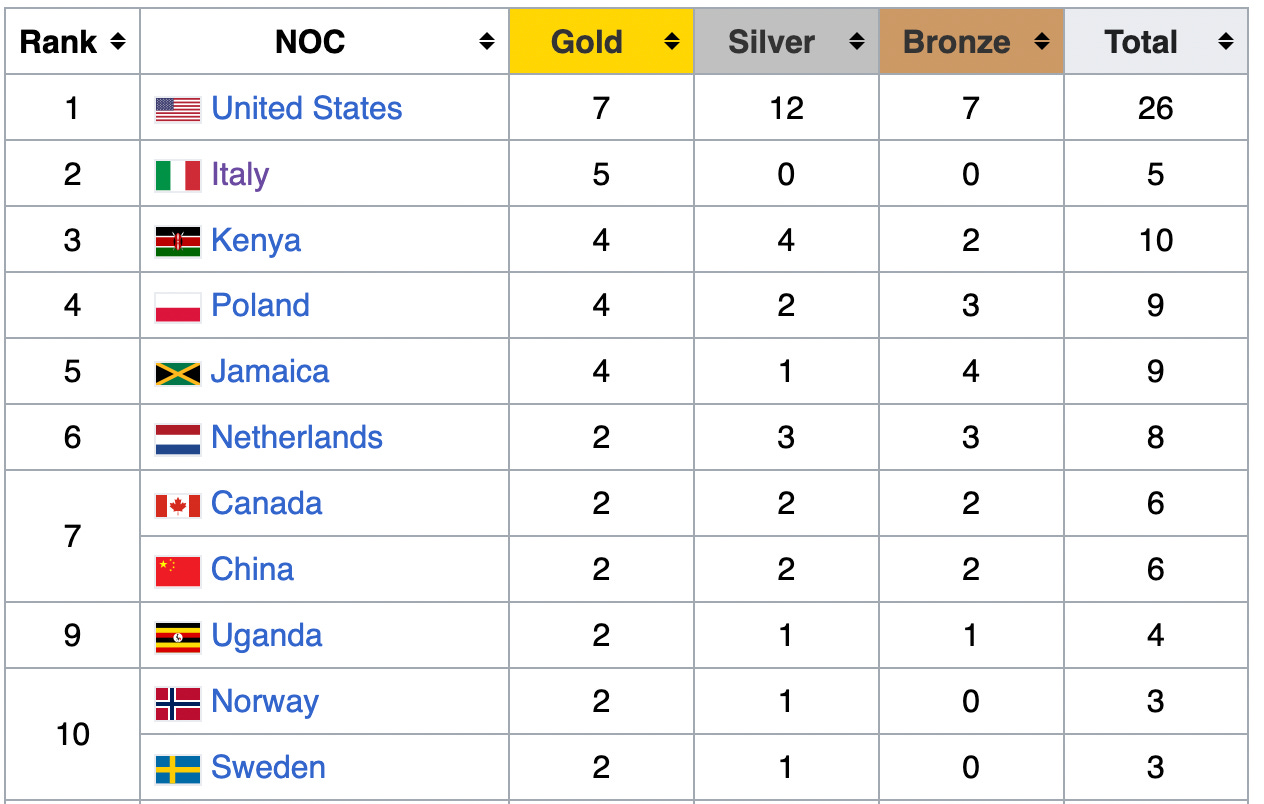How self-efficacy helps athletes achieve the impossible at the Olympics
Bandura's self-efficacy theory explains Italy's incredible success at the Tokyo 2020 Olympics
📝 Words: 1,458 | 🕰️ Estimated Reading time: about 7 mins
Everything is ready.
The Summer Olympics have returned, and the excitement is through the roof.
The Olympics are the oldest form of organized athletic competition, tracing their origins back to ancient Greece. The first recorded Olympics took place in 776 BC, at the sanctuary of Zeus in Olympia.
These games were part of a religious festival in honor of Zeus, and were held every four years - a period known as an “Olympiad”.
However, it was only in 1896 that the first modern Olympic Games (as we know them) took place in Athens, Greece.
128 years after that first 100m run, Paris will be hosting the 33rd edition.
From 26th July to 11th August 2024, 10,500 of athletes from all over the world will compete in 329 events in 32 different sports (including 4 new additions).
I love everything about the Olympics: the spirit, the competition, the drama, the excitement, the roaring support from the fans, and the underdogs winning medals.
Yes, the underdogs defeating expectations. I love their stories and their motivations.
As an Italian, I rarely witness my country competing head-to-head with the strongest teams, such as the USA, China, Russia, Japan or Great Britain. Our team is often the underdog in many sports, with some exceptions obviously1.
However, something changed in the last Summer Olympics (Tokyo 20202), with Italy winning 10 gold, 10 silver and 20 bronze medals, setting a new record in the number of medals won.
As I watched the Italian team at Tokyo 2020, one thing stood out in particular: the rapid succession of gold medals won from a specific day onwards, as if something on that day unlocked athletes to perform better in the days after.
8 out of the total 10 gold medals were won after one day: July 31st.
Look at the graph below, showing the number of gold medals won by Italy per day at the Tokyo 2020 Olympics:
What happened on July 31st?
On that day, Marcell Jacobs stunned Italy by qualifying for the 100m final with the European record (9’’ 94). It was a historic moment, marking the first time an Italian had ever reached a 100m final - the most prestigious events at the Summer Olympics.
Jacobs’ performance was truly a diamond in the rough, considering Italy’s not so good record in sprint races. All the Italian newspapers were celebrating the performance, and international newspapers were stunned (and a bit jealous).
Jacobs - being the first Italian to qualify in the 100m final - showed himself and the whole Italian team that nothing was impossible. He literally shuttered the mental barrier that a 100m final was impossible to reach.
Psychologist Albert Bandura in his self-efficacy theory postulates that seeing others succeed increases one's belief in their own ability to succeed in similar tasks (i.e. self-efficacy coming from vicarious experiences).
More generally, self-efficacy is a person’s belief in their ability to succeed in a particular situation. And we develop our self-efficacy beliefs by interpreting information from four sources of influence: experience, vicarious experience, social persuasion, and physiological feedback.
Jacobs’ performance broke the barrier and unlock the hidden potential for other athletes on the same team to succeed in the days after.
But didn’t we just say that self-efficacy is a person’s belief in their ability to succeed in a particular situation?
Therefore, this did not only work for his teammates. It especially worked for him.
Because on the following day, August 1st 2021, Marcell Jacobs won the gold medal in the 100m final, breaking the European record again (9’’ 80).
On that day, August 1st, Italy won 2 gold medals in 20 minutes. Gianmarco Tamberi had literally just won the gold medal in high jump - when he greeted Jacobs at the 100m finishing line with a hug as if to say “what have we done?!”
August 1st 2021 was the most historical day for Italian sports. Italy had the fastest man on the planet and the man who jumped the highest.
But everything started the day before, on July 31st, when Jacobs showed everyone that the impossible was now possible.
Recap
July 31st: Jacobs qualifies for the 100m final - it’s a historical moment for Italy.
August 1st: Marcell Jacobs wins the gold medal in the 100m, 20 minutes after Gianmarco Tamberi secured the gold medal in high jump (also the very first gold in men’s high jump for Italy). Historical wins.
Following Jacobs' (and Tamberi’s) triumph, Italy secured 6 more gold medals over the next 5 days:
3rd August: Ruggero Tita and Caterina Banti in sailing (Mixed Nacra 17)
4th August: Simone Consonni, Filippo Ganna, Francesco Lamon and Jonathan Milan in cycling track (Men's team pursuit)
5th August: Massimo Stano in Men's 20 kilometres walk
6th August: Antonella Palmisano in Women's 20 kilometres walk, Luigi Busà in Karate (Men's 75 kg) and Eseosa Desalu, Marcell Jacobs, Lorenzo Patta and Filippo Tortu in the Men's 4 × 100 metres relay
Do yourself a favor and watch the Men’s team pursuit race and the Men's 4 × 100 metres relay. They are both amazing comeback wins, truly breathtaking.
We will never truly know the real impact of Jacobs’ extraordinary performances on July 31st and August 1st on the Italian team - whether those performances really gave the team the extra confidence, inspiration, and boost needed to win those gold medals.
Bandura’s work shows that self-efficacy beliefs determine how we feel, think, motivate ourselves and behave, and that we are indeed extremely influenced by seeing other people succeed in similar tasks.
So that could have really happened. Jacobs’ stunning performance could have really positively influenced his teammates to go above and beyond in their disciplines. And I personally like to think that this is what really happened.
Most of all because the results speak clearly: Italy at the Tokyo 2020 Olympics ended in second place behind the USA in the Athletics medal table. Something unimaginable by even the most optimistic person.
We have seen the effect of vicarious experiences on self-efficacy beliefs in other contexts.
For example, this was the case with the four-minute mile, a barrier runners worldwide had tried to break for nearly 70 years without success. Then came Roger Bannister, who run it with 3:59.4 and shattered this barrier unexpectedly.
Before Bannister broke the record in 1954, running a mile in under four minutes was considered humanly impossible. However, not only did Bannister broke the barrier, but his record was also surpassed just 46 days later.
It was almost like Bannister allowed other runners to believe they could now run a mile under 4 minutes.
Another example is when Edmund Hillary and Tenzing Norgay were the first to reach the summit of Mount Everest in 1954. Before they did it, this was thought to be impossible.
In business, just think about what Elon Musk (love him or hate him) is doing with his SpaceX and Tesla. This is what Peter Thiel recently said about him:
You know, when Elon was building both Tesla and SpaceX in the 2000s, people thought he was just really, really crazy.
I think even those of us who had worked with him at PayPal, I mean, there’s this PayPal book that David Sacks and I thought of writing, and the Elon chapter was titled something like “The Man Who Knew Nothing About Risk”.
[…] If one of the two companies had succeeded, you would say, “Well, maybe he still got really lucky”, but when two out of two companies that people thought were completely harebrained in the 2000s, when they both succeed, you have to somehow reassess it, and somehow, the rest of us, somehow, are too risk averse, or there’s something about risk he knows that we don’t, or something like this.
So, as we are ready to watch these Summer Olympics in Paris, we should remember that the impossible is only a step away from becoming possible, in sports, in business, and generally in life.
Who knows? Maybe the next incredible story is just around the corner.
For all the athletes at the Olympics: “Bonne chance!”, and for all of us watching: “Let’s enjoy the show”.
See you next Sunday 🗓️
Thanks,
Giacomo
Fencing brought 130 medals to Italy in all Summer Olympics, most of any other sports (cycling is second, with 63 medals) and more than any other country.
Tokyo 2020 took place in the Summer of 2021 after being rescheduled due to the COVID-19 pandemic.














A fantastic analysis! Incredible what our mind can do!
Loved this reading. Especially doing the day after Italy broke another barrier with the women volleyball team winning the gold for the first time in history!!! 🏅🏅🏅🏅🏅